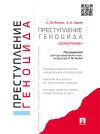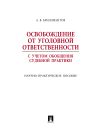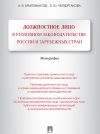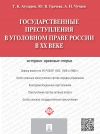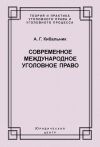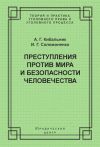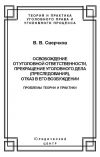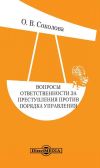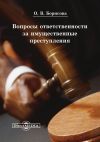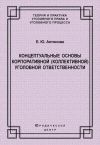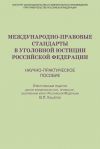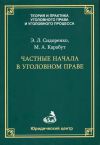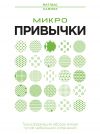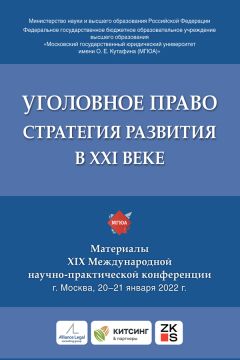
Автор книги: Коллектив авторов
Жанр: Прочая образовательная литература, Наука и Образование
сообщить о неприемлемом содержимом
Текущая страница: 22 (всего у книги 77 страниц) [доступный отрывок для чтения: 25 страниц]
Законодательство Швейцарии в сфере защиты животных от жестокого обращения
Н. Ю. Филатова
старший преподаватель кафедры уголовного права
(Северо-Западный филиал РГУП (г. Санкт-Петербург))
Швейцария считается одной из наиболее прогрессивных стран в сфере защиты животных от жестокого обращения. В ежегодном рейтинге Всемирного общества защиты животных в 2020 г. Швейцария, наряду с такими странами, как Великобритания, Нидерланды, Австрия, Дания и Швеция, получила оценку «B» (по шкале от A до G, где А – наивысший балл, а G – наименьший). При этом, необходимо отметить, что наивысший результат «А» в 2020 г. не получила ни одна из стран. Ранее, в отчете за 2014 г., Швейцария была удостоена рейтинга с отметкой «А»475.
В 1993 г. в Конституции Швейцарии – впервые в мире – было закреплено понятие «достоинства творения» (на нем. «Würde der Kreatur», творение, в данном случае, означает «все живое»). Идея этой новеллы была вызвана желанием защитить человека и окружающую среду от потенциального злоупотребления генными технологиями:
«1. Люди и окружающая среда должны быть защищены от злоупотребления генетическими технологиями.
2. Союз принимает законодательство об использовании зародышевого и генетического материала животных, растений и других организмов. Таким образом он принимает во внимание достоинство Творения, а также безопасность человека, животного и окружающей среды и охраняет генетическое многообразие видов животных и растений» (ст. 123).476
Это нововведение повлекло за собой серьезные последствия для разных отраслей права. Например, в 2003 г. в Гражданском кодексе Швейцарии было указано, что животные не являются объектами права собственности477. Что, в свою очередь, привело к изменениям в деликтном праве, праве наследования и праве собственности. Например, изменились нормы, касающиеся определения места проживания общих домашних животных при разводе.
В то же время понятие «достоинства творения» осталось спорным в юридической доктрине. Говоря о достоинстве человека, принято полагать, что он обладает особой, неотъемлемо присущей ему ценностью, которая не зависит от пользы для других людей, просто по факту своего существования. Юристам Швейцарии еще предстоит решить, насколько можно применить эту концепцию к другим живым существам, и до какой степени.478
Например, в 2009 г. Федеральный суд Швейцарии рассматривал вопрос проведения научных экспериментов на макаках и к выводу, что эксперименты на приматах необходимо запретить по следующим основаниям:
«Хотя оно [достоинство творения] не может и не должно приравниваться к достоинству человека, оно и в самом деле требует, чтобы живые существа, по крайней мере, до определенного предела, считались и оценивались как равные человеку… Близость, существующая между достоинством животных и людей, может, в частности, учитываться в отношении к приматам, не являющимся людьми».479
В 2005 г. Закон об охране животных, который действовал в Швейцарии с 1978 г. (Federal Animal Protection Act), был полностью пересмотрен и принят новый Закон о благополучии животных (Animal Welfare Act). Целью закона является защита достоинства и благополучия животных. В нем регламентируется запрет на причинение животным боли, страдания и физического вреда, а также воспрещается пугать их или иным способом нарушать их достоинство без уважительной причины. Кроме того, указывается на недопустимость чрезмерной эксплуатации животных. Закон действует в отношении защиты любых позвоночных животных (млекопитающих, птиц, рептилий, амфибий и рыб) и даже некоторых беспозвоночных, которые должны быть отдельно определены Федеральным советом Швейцарии. К таким беспозвоночным были, например, отнесены головоногие (осьминоги и кальмары) и ракообразные (лобстеры и крабы). Также законом было дано определение благополучию: это содержание и кормление животных таким образом, который соответствует их телесным функциям и поведению480.
Наряду с Законом о благополучии животных в Швейцарии действует Указ о благополучии животных 2020 г. (Animal Welfare Ordinance), наиболее подробно описывающий потребности животных, которые обязаны учитывать люди. Указ регулирует общественные отношения, которые возникают в сфере защиты позвоночных животных, головоногих и десятиногих ракообразных481. В рассматриваемом документе подробно регламентированы условия содержания и обращения с животными. Например, указывается, что животных перед забоем необходимо определенным образом лишать сознания (исключения сделаны только для производства кошерного и халяльного мяса). Это правило касается даже лобстеров, которых, например, нельзя варить живьем. Кроме того, в ст. 12 Раздела 1 Главы второй закреплено, что животные не должны подвергаться чрезмерному шуму в течение длительного периода. Такой шум будет считаться чрезмерным, если он вызывает, среди прочих, агрессивное поведение у животного. В Разделе 3 той же главы устанавливается запрет на жестокое обращение, пренебрежение или чрезмерную эксплуатацию животных, а также подробно регламентируются запрещенные деяния. Среди них такие деяния, как жестокое убийство животных, удары животных по глазам или гениталиям, организация драк между животными или с их участием, использование животных для выставок, рекламы, фильмов или аналогичных целей, если такое использование явно связано с болью, страданиями или причинением вреда животному, участие животных в соревнованиях и спортивных мероприятиях с использованием запрещенных веществ, зоофилия и др.
В Законе о благополучии животных 2005 г. также указаны меры уголовной ответственности, которые наступают в случае его нарушения. В статьях главы пятой «Уголовно-правовые нормы» перечислены следующие преступления:
• плохое обращение, пренебрежение или чрезмерная эксплуатация животного или иное нарушение его достоинства;
• убийство животного способом, причиняющим ему страдания;
• организация драк между животными или с участием животных, в результате которых животные страдают или погибают;
• причинение боли, страдания или вреда животному, или стресса в ходе экспериментов, если этого можно избежать в рамках цели эксперимента
• оставление домашнего или сельскохозяйственного животного с целью избавиться от него482.
Если лицо совершило эти деяния умышлено, то оно подвергается наказанию в виде лишения свободы до 3 лет и штрафу. Если же по неосторожности, то назначается наказание в виде штрафа в размере, не превышающим 180 «суточных штрафных единиц» (daily penalty units). В соответствии со ст. 34 Уголовного кодекса Швейцарии одна суточная штрафная единица обычно составляет минимум 30 и максимум 3000 франков483. Наказанию в виде штрафа в размере до 20000 швейцарских франков подвергается также лицо, совершившее преступление, связанное с торговлей животными и продуктами животного происхождения (ст.27 Закона о благополучии животных). За остальные деяния (например, нарушение правил перевозки животного, несоблюдение правил содержания животного и др.) согласно ст. 28 также наказывается штрафом в размере до 20000 франков, если они совершены умышлено.
Согласно статистике, представленной на пресс-конференции Фонда защиты животных в Швейцарии (Stiftung für das Tier im Recht), количество уголовных дел в сфере жестокого обращения с животными в 2017 г. составило 1691. Более половины относится к преступлениям, совершенных в отношении животных-компаньонов. Дела, касающиеся сельскохозяйственных животных, составили чуть более четверти судебных разбирательств. Наиболее часто встречались преступления, совершенные в отношении собак: половина связана с нарушением правил обращения с собаками, а другая половина обычно была связана с отсутствием сертификата о прохождении курсов обращения с собаками.484 Приговоры к лишению свободы крайне редки, и, как правило, такое наказание назначается условно. В 2017 г. таких приговоров не было вынесено. Штрафы, как правило, оказываются значительно ниже максимальной предусмотренной законом суммы и обычно составляют около 300 швейцарских франков.485
В качестве примера можно привести случай 2018 г. Районный суд Цофингена приговорил мужчину к условному заключению на срок 20 месяцев и штрафу в размере 1000 швейцарских франков за убийство двух собак породы карликовый пинчер. Было установлено, что беременная жена мужчины жаловалась на невыносимый запах собак. Не найдя другого выхода, мужчина привязал животных к стальным трубам и опустил в реку. Трупы животных в воде заметил прохожий. Суд также установил, что собаки погибли в мучениях. Жена, как соучастница, была приговорена в 16 месяцам условного заключения и условному штрафу.486
В 2019 г. участникам зоозащитной организации удалось снять на видео, как работники одной из швейцарских ферм обращаются с животными при забое. На записи видно, что рабочий, который обязан оглушить животное шокером, промахивается, и животное (коза) начинает вырываться и кричать. Рабочий снова пытается ударить козу током, и снова промахивается, пугая животное еще сильнее. Суд признал работников фермы виновными в нарушении правил фиксации и забоя животных и приговорил к штрафу в размере 250 швейцарских франков487.
Проблема сложилась в Швейцарии с домашними кошками. В то время как Закон о благополучии животных запрещает жестокое обращение с домашними животными, Федеральный закон об охоте гласит, что охоту на енотовидных собак, енотов и одичавших домашних кошек можно вести круглый год. В каждом кантоне приняты свои правила определения, является ли кошка одичавшей. Так, в Цюрихе кошку можно застрелить, если она находится в лесу на расстоянии более 300 метров от ближайшего дома и по поведению и внешнему виду ее можно принять за одичавшую. В Люцерне кошка должна зайти в лес на расстояние не менее 50 метров от опушки.
По оценкам организаций защиты животных, в Швейцарии живут от 100 000 до 300 000 одичавших кошек. Зоозащитники убеждены, что охотники убивают огромное количество животных, поскольку еще совсем недавно в Швейцарии был популярен кошачий мех. Пледы из кошачьего меха считались народным средством от ревматизма, и их можно было открыто приобретать в магазинах до 2008 г. Более того, предполагается, что на фермах и в сельской местности Швейцарии до сих пор практикуют приготовление национальных блюд из кошачьего мяса. Охотники, в свою очередь, заявляют, что опасения беспочвенны, и вряд ли за год убивают более нескольких животных, поскольку экономической выгоды от охоты на кошек мало, а каждый случай вызывает большой общественный резонанс. Наконец, сами одичавшие кошки несут большую угрозу для окружающей среды, поскольку уничтожают диких птиц и мелких животных, именно поэтому их разрешено отстреливать. Зоозащитники пытаются провести законопроект об обязательной стерилизации одичавших кошек, но им противостоит сельскохозяйственное лобби, представители которого считают, что это неоправданно дорогая мера.488
Таким образом, можно прийти к выводу, что законодательство Швейцарии достаточно подробно регламентирует ответственность за различные преступные деяния в отношении животных, под которыми понимается как умышленное жестокое обращение и несоблюдение требований и правил, касающихся содержания животных, так и деяния, совершенные по неосторожности. При этом Швейцария одна из немногих стран, в которой охране подлежат не только позвоночные животные, но и класс головоногих и десятиногих ракообразных. Однако, несмотря на такую широкую сферу применения, на практике все же встречаются некоторые проблемы, связанные, в частности, с охраной от жестокого обращения одичавших кошек, что, безусловно, является пробелом в законодательном регулировании.
Political principlism as a solution
Rodrigo Andrés Guerra Espinosa,489
Professor of Criminal Law
(Universidad de los Andes-Chile, Chile)
There are good reasons to argue that principles cannot be rooted in deontic content because one might suspect that, in the context of criminal policy, they would be nothing more than a fetish,490 i.e., content that should be worshiped for its supernatural entity, with the aim of governing the reasoning of those involved in the system.
However, content of such an entity allows to articulate a solution in cases of a state of necessity, according to all the rules of the system around the pillars of an enlightened society: equality, freedom, dignity and fraternity. Although someone could question that the model “rests on the candid premise according to which those first principles would be, without further ado, universal,”491 this would lead us to do away with a dogmatic that evolves according to a tradition that makes the rules operational in society.
A criminal policy as a normative science must start from a social consensus that recognizes the confrontation of the positions that gave rise to the pillars of the illustration. Therefore, any problem of political significance requires a rationale that considers the principles of legality, security and human dignity in relation to the illustrated deontic pillars already mentioned (freedom, equality, dignity and fraternity).
Therefore, this criminal policy is compatible with the contingency of the democratic game, to the extent that it recognizes the historical consensus that has prevented its breakdown. One could also think that “political-criminal principlism … seems to hide, in the form of an ideological device, the politically controversial character of the postulates that this principlism presents as axioms.
In this sense, principlism operates by promoting a specific form of false consciousness.”492 However, this axiology is part of a philosophy of the future that makes the content of the principles explicit. In that sense, a principle-oriented criminal policy does not appeal to a false conscience, but rather to the effort to describe an ideal based on enlightened roots.
Now, one could argue that those who promote a criminal policy of this nature “believe they are offering a non-political modeling of a certain space of political dispute –namely, that of criminal policy– being the case that this modeling turns out to be irreducibly political, which means: politically controversial.”493 However, this assertion seems to us to be wrong because there is an axiology that could hardly be rejected.494 Although these enlightened ideals judge us in the search for human perfection, they are of all reasonableness in evaluating a fact according to the rules of the system. In this sense, dogmatic thought disciplines itself by adhering to the interpretation strategy of a principle-oriented criminal policy, which can hardly be defeated through a postmodern interpretation.495
In this context, the discipline of criminal law seeks to explain the phenomena presented according to the axioms of an initial system that allows for the incorporation of new argumentation strategies. This, in order to discover new ways in the weighting and compensation of principles in attention to the complexity of the environment. Hence, in principle, it is necessary to enslave oneself to deontic contents in order to be free within the confines of a criminal policy.
However, the following question remains: is it a mere matter of differences of opinion to operate according to the logic of a principle-oriented criminal policy? If the question is arbitrary and it does not matter which axiological system we use, it would not be possible to differentiate justification from exculpation in a contingent space of conflict. Such position would always leave the decisions in the hands of the group that has the most power to make the decision of the specific case.
However, we consider that the contributions of the enlightened tradition on which human dignity is based cannot be replaced. Otherwise, there is a risk of resolving legal conflicts by means of a single principle to the detriment of that dignity.496 As an example, the articulation of the effects of the state of necessity does not only require verifying its positive requirements, but also axiological criteria. Hence, the historical difficulties are not trivial in the death of innocents in extreme necessity, although there are those who identify problems in maintaining that life is on a pedestal.
There is an infinite number of cases that can be altered to the point of not being able to distinguish how to resolve them in the state of necessity. Therefore, axiological models are relevant in the decision of who lives or dies, since all thought would begin with an initial premise. Although there are objective parameters that are positivized in the state of necessity, it is part of the discussion to ask what allows to determine that the harm caused is not substantially superior to the one intended to be avoided in Article 10 Nº 11 of the Chilean Criminal Code.
In this order of ideas, is it possible to argue that two ethical universes can coexist in the state of necessity? Or does the solution lie in a neutral criterion? Well, what are the parameters of a reasoning based solely on the positive requirements of this exculpatory defense? Although positivism may be a successful perspective in reductionist terms, it is dangerous to eradicate the deontic content of principles in the criminal system. Hence, the world inhabited by those who criticize a principle-oriented criminal policy is so conditioned by this content that they take the ethics that emerge from its origins for granted.
If we accept that the principles are only part of a contingent process, what would be the content that governs them? In that sense, can we dispense with all axiology? Well, normative ethics is the consequence of a dogmatic that, rooted in enlightened thought, is difficult to ignore in necessity. Thus, the principles have a deontology that is found in the primary sources of the theory of crime. Thus, it seems to us that those who reject a principle-oriented criminal policy submit insufficient questions.
The justificator of ultimate military need as an institution of legal extortion of the soldier’s obey
Radosław Pietrzak,
MA in law
(Institute of Law and Administration Pomeranian University in Słupsk, Poland)
The Armed Forces, must always be disciplined. That’s because otherwise this institution is useless in war and dangerous for its citizens in peacetime. The basis for the functioning of the army is an order, while there are many ways to discipline it. The commanders of the Polish Armed Forces may impose penalties on soldiers under the Military Discipline Act497, which Art. 2 clause 2, point 1 specifies that „the superior is obliged to shape the military discipline of the soldiers subordinate to him, in particular through preventive and educational activities as well as creating conditions for distinguishing and observing military discipline”. If the possibilities provided by the aforementioned act were not enough and, what is more, if a given soldier had committed a criminal act, the Polish penal code in the military part provides for various sanctions for such an act. However, sometimes there may be a situation when a soldier resists to obey his commander.
The ultimate military need in the past
In Poland, the institution of ultimate military need in the codex version appeared for the first time in 1872 with the entry into force of the German Military Criminal Code498 and it had a double legal character. Meaning of it is, this institution made it possible both to enforce obedience to a soldier and to act in necessary defense499 when the situation needed it. Subsequently, this institution was incorporated into the Military Penal Code of 1920500. and then, in the same version, it was defined in the military penal code of 1928501.
The institution of ultimate military need in Polish legislation changed significantly with the entry into force of the Military Penal Code of 1932502. Since then, this institution served only to enforce obedience to the soldier, but not as a necessary defense503. The commanding officer also had the right to use gun, as part of the ultimate military need, but only in certain cases and only on condition that it was not possible to use other, less cruel methods to make soldier obey orders.
On September 23, 1944, the Penal Code of the Polish Army504 entered into force, in which art. 23 defined the ultimate military need unchanged in relation to the Military Penal Code of 1932. A significant change in the institution of ultimate military need occurred in 1963 with the amendment of the Penal Code of the Polish Army505. The change consisted in the fact that from that moment the act in the ultimate military need ceased to be an unlawful but unpunished act, instead, it excluded the unlawfulness of the act. This change was important because the exclusion of only criminal records raised the fear that in the event of exceeding the limits of the ultimate military need by the commanding officer, a subordinate soldier could legally act in necessary defense, which could result in major problems in military discipline, perhaps even lead to disorganization in the armed forces506.
On January 1, 1970, the Penal Code of 1969507 entered into force, in which the provision of Art. 291, defining the ultimate military need, did not change in terms of content, but only in terms of editing, and it survived in this form until 1998, when the current Polish penal code508 came into force.
The ultimate military need now
In the current Polish penal code, the institution of ultimate military need is defined in Art. 319 § 1, its wording is as follows „A soldier does not commit a crime if, in the situation of disobedience or resistance, he applies the measures necessary to enforce obedience to an order he was entitled to issue, if the circumstances require immediate action, and obedience to the order cannot be achieved otherwise”. This institution is compared by dogmatists to the necessary defense and the case of absolute necessity509. Pursuant to the said provision, the commander may take the measures necessary to force obedience to a soldier who resists an order issued in accordance with the law. In this case, the requirement for immediate action is essential, plus the inability to force obedience in any other way. If the limits of the final need are exceeded, the court may apply to the ordering party extraordinary mitigation of punishment, but may not refrain from imposing it. In the Polish dogmatics of criminal law, the possibility of using a weapon against a reluctant soldier is perceived differently, because the law does not directly prohibit or allow its use to enforce obedience, but most dogmatists of criminal law in Poland are against the possibility of using it510. M. Flemming believes that taking into account the compilation of the current provision defining the ultimate military need with Art. 291 of the Penal Code 1969, the legislator does not want to allow the use of weapons within this institution. However, doesn’t excluding the possibility of its use in a case of absolute necessity or necessary defense511. It should be remembered that this provision was developed for the time of peace, as the project initiator himself pointed out. It can therefore be presumed that the issue of the use of weapons, in order to enforce obedience in the event of an armed conflict, will be possible in accordance with the law512.
The ultimate military need in the Polish dogmatics of criminal law is treated as a variant of the case of absolute necessity, but it differs in that it does not require the commander who requires obedience to his order to respect the principle of the proportion of goods513. This solution seems right, because, as M. Flemming noted, it is difficult to imagine a situation in which the commander would have to wonder whether, while forcing obedience to a reluctant soldier, he would not infringe a good of a higher value than military discipline, which in this case is always a good saved.
Conclusions
For the mentioned reasons, it seems that this institution is rightly defined in the Polish penal code, because it differs from the commonly known case of absolute necessity, and provides the commander with an additional legal tool to maintain military discipline and, consequently, its combat value, but also allows for strengthening or maintaining discipline in the army, which is a very important good both from the military and citizens’ point of view, and despite the long history of this institution, it seems to be an innovative legal tool, even nowadays.
Правообладателям!
Данное произведение размещено по согласованию с ООО "ЛитРес" (20% исходного текста). Если размещение книги нарушает чьи-либо права, то сообщите об этом.Читателям!
Оплатили, но не знаете что делать дальше?